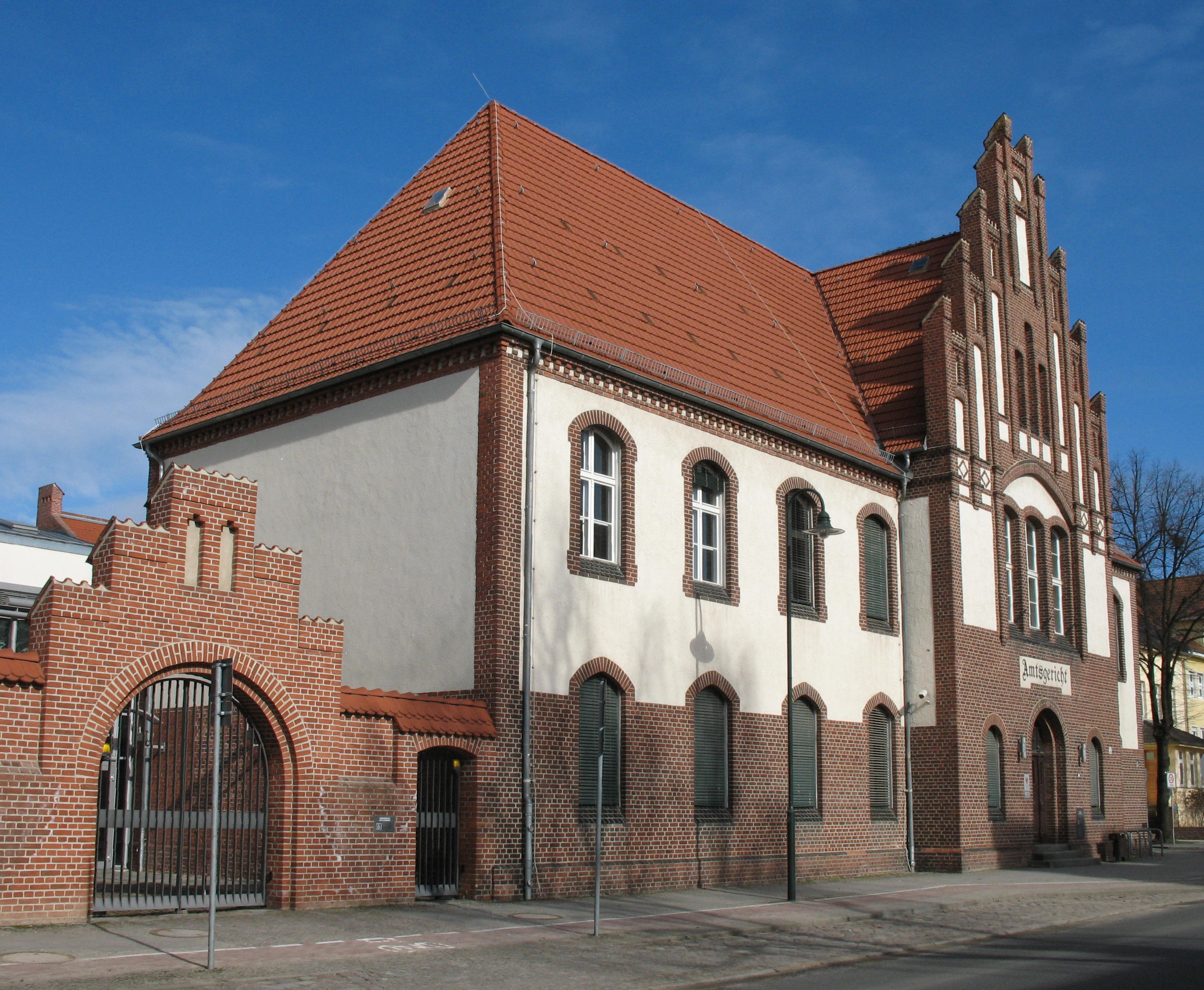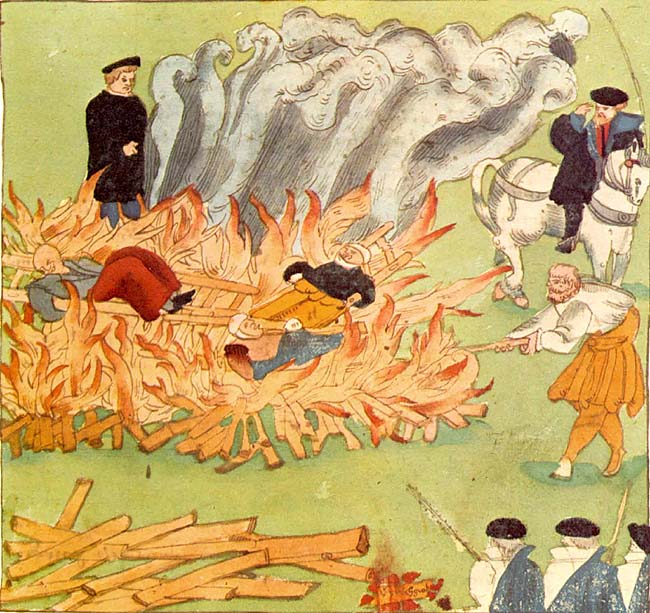|
Bernau Bei Berlin
Bernau bei Berlin (English ''Bernau by Berlin'', commonly named Bernau) is a German town in the Barnim district. The town is located about northeast of Berlin. History Archaeological excavations of Mesolithic-era sites indicate that this area has been inhabited since about 8800 BC. The city was first mentioned in 1232. The reasons for its founding are not known. According to a legend, Albert I of Brandenburg permitted the founding of the city in 1140 because of the good beer which was offered to him. Beer was brewed with water from the river Panke. Therefore, it was forbidden by law to pollute this river with waste and excrement when brewing took place. Bernau had its boom years before the Thirty Years' War. Large parts of the defensive wall with town gate and wet moats are relics of that time. These helped Bernau defend itself successfully against attackers, e.g. the Hussites in 1432. Following the plague and war, Bernau became poor and bleak. Frederick I of Prussia settled 25 ... [...More Info...] [...Related Items...] OR: [Wikipedia] [Google] [Baidu] |
Ortsteil
A village is a clustered human settlement or Residential community, community, larger than a hamlet (place), hamlet but smaller than a town (although the word is often used to describe both hamlets and smaller towns), with a population typically ranging from a few hundred to a few thousand. Though villages are often located in rural areas, the term urban village is also applied to certain urban neighborhoods. Villages are normally permanent, with fixed dwellings; however, transient villages can occur. Further, the dwellings of a village are fairly close to one another, not scattered broadly over the landscape, as a dispersed settlement. In the past, villages were a usual form of community for societies that practice subsistence agriculture, and also for some non-agricultural societies. In Great Britain, a hamlet earned the right to be called a village when it built a Church (building), church. [...More Info...] [...Related Items...] OR: [Wikipedia] [Google] [Baidu] |
Bauhaus
The Staatliches Bauhaus (), commonly known as the Bauhaus (), was a German art school operational from 1919 to 1933 that combined crafts and the fine arts.Oxford Dictionary of Art and Artists (Oxford: Oxford University Press, 4th edn., 2009), , pp. 64–66 The school became famous for its approach to design, which attempted to unify individual artistic vision with the principles of mass production and emphasis on function. The Bauhaus was founded by architect Walter Gropius in Weimar. It was grounded in the idea of creating a Gesamtkunstwerk ("comprehensive artwork") in which all the arts would eventually be brought together. The Bauhaus style later became one of the most influential currents in modern design, modernist architecture, and architectural education. The Bauhaus movement had a profound influence upon subsequent developments in art, architecture, graphic design, interior design, industrial design, and typography. Staff at the Bauhaus included prominent artists ... [...More Info...] [...Related Items...] OR: [Wikipedia] [Google] [Baidu] |
Witch Hunt
A witch-hunt, or a witch purge, is a search for people who have been labeled witches or a search for evidence of witchcraft. The classical period of witch-hunts in Early Modern Europe and Colonial America took place in the Early Modern period or about 1450 to 1750, spanning the upheavals of the Reformation and the Thirty Years' War, resulting in an estimated 35,000 to 50,000 executions. The last executions of people convicted as witches in Europe took place in the 18th century. In other regions, like Africa and Asia, contemporary witch-hunts have been reported from sub-Saharan Africa and Papua New Guinea, and official legislation against witchcraft is still found in Saudi Arabia and Cameroon today. In current language, "witch-hunt" metaphorically means an investigation that is usually conducted with much publicity, supposedly to uncover subversive activity, disloyalty, and so on, but with the real purpose of intimidating political opponents. It can also involve elements ... [...More Info...] [...Related Items...] OR: [Wikipedia] [Google] [Baidu] |
Annelie Grund
Annelie Grund (born 28 June 1953, Berlin) is a German artist, stained glass artist, artist and musician. She lives in Wandlitz and is married to the architect Manfred Thon. Biography 1976 she acquired the diploma at the Humboldt University of Berlin in the subjects of art, painting and German language and literature studies. 1983 she got the master craftsman's diploma as stained-glass artist. Since 1979 she is a freelance artist and stained-glass artist in her own studio and workshop. Music Since her childhood she practices overtone singing. She received lessons by the choir director Christian Bollmann in Düsseldorf and for a long time took part in the Berlin Didgeridoo-Orchestra. She performed music in the DUO Bernstein (1996–2001). Nowadays she makes music during projects of art with her husband. Glass Art She implemented many projects of glass art which are displayed in public, mostly made of glass, but also of steel and stone, painted windowpanes in churches and f ... [...More Info...] [...Related Items...] OR: [Wikipedia] [Google] [Baidu] |
Middle Ages
In the history of Europe, the Middle Ages or medieval period lasted approximately from the late 5th to the late 15th centuries, similar to the post-classical period of global history. It began with the fall of the Western Roman Empire and transitioned into the Renaissance and the Age of Discovery. The Middle Ages is the middle period of the three traditional divisions of Western history: classical antiquity, the medieval period, and the modern period. The medieval period is itself subdivided into the Early, High, and Late Middle Ages. Population decline, counterurbanisation, the collapse of centralized authority, invasions, and mass migrations of tribes, which had begun in late antiquity, continued into the Early Middle Ages. The large-scale movements of the Migration Period, including various Germanic peoples, formed new kingdoms in what remained of the Western Roman Empire. In the 7th century, North Africa and the Middle East—most recently part of the Eastern Ro ... [...More Info...] [...Related Items...] OR: [Wikipedia] [Google] [Baidu] |
Bernau Hexendenkmal in Baden-Württemberg, Germany
{{Disambig ...
Bernau may refer to: *Bernau bei Berlin, a town in Brandenburg, Germany *Bernau am Chiemsee, a municipality in the district of Rosenheim in Bavaria, Germany *Bernau im Schwarzwald, a municipality in Baden-Württemberg, Germany *Bernau im Rhein-Neckar-Kreis, a part of Waibstadt Waibstadt () is a town in the district of Rhein-Neckar-Kreis, in Baden-Württemberg, Germany. It belongs to the municipal administration union "Waibstadt", which consists of Epfenbach, Helmstadt-Bargen, Neckarbischofsheim, Neidenstein, Reich ... [...More Info...] [...Related Items...] OR: [Wikipedia] [Google] [Baidu] |
Census In Germany
A national census in Germany (german: Volkszählung) was held every five years from 1875 to 1910. After the World Wars, only a few full population censuses have been held, the last in 1987. The most recent census, though not a national census, was the 2011 European Union census. Early history Nuremberg in 1471Kersten Krüger: ''Historische Statistik'', in: ''Formung der frühen Moderne - Ausgewählte Aufsätze'', LIT Verlag Berlin-Hamburg-Münster, 2005 ,p. 272/ref> held a census, to be prepared in case of a siege. Brandenburg-Prussia in 1683 began to count its rural population. The first systematic population survey on the European continent was taken in 1719 in the Mark Brandenburg of the Kingdom of Prussia, in order to prepare the first general census of 1725. In Habsburg ruled Austria, a population count had been introduced in 1754, but due to resistance by nobility and clerics, no full census was held after 1769. A century and many political changes later, census res ... [...More Info...] [...Related Items...] OR: [Wikipedia] [Google] [Baidu] |
Bernau Bei Berlin Hohe Steinstraße in Baden-Württemberg, Germany
{{Disambig ...
Bernau may refer to: *Bernau bei Berlin, a town in Brandenburg, Germany *Bernau am Chiemsee, a municipality in the district of Rosenheim in Bavaria, Germany *Bernau im Schwarzwald, a municipality in Baden-Württemberg, Germany *Bernau im Rhein-Neckar-Kreis, a part of Waibstadt Waibstadt () is a town in the district of Rhein-Neckar-Kreis, in Baden-Württemberg, Germany. It belongs to the municipal administration union "Waibstadt", which consists of Epfenbach, Helmstadt-Bargen, Neckarbischofsheim, Neidenstein, Reich ... [...More Info...] [...Related Items...] OR: [Wikipedia] [Google] [Baidu] |
Marienkirche Bernau Bei Berlin
St. Mary's Church, St. Mary the Virgin's Church, St. Mary Church, Saint Mary Church, or other variations on the name, is a commonly used name for specific churches of various Christian denominations. Notable uses of the term may refer to: Albania * St. Mary's Monastery Church, Dhivër * St. Mary's Church, Elbasan * St. Mary's Monastery, Goranxi * St. Mary's Church, Himarë * St. Mary's Monastery, Kakome * St. Mary's Monastery Church, Koshovicë * St. Mary Church, Krujë * St. Mary's Monastery Church, Lubonjë * St. Mary's Church, Maligrad * St. Mary's Church, Mbreshtan * St. Mary's Church, Melçan * St. Mary's Church, Moscopole * St. Mary's Monastery Church, Piqeras * St. Mary's Church, Surrel * St. Mary's Monastery Church, Tranoshisht * St. Mary's Church on Drianos, Zervat Australia * St Mary's Anglican Church, Busselton, Western Australia * St Mary's Anglican Church, Kangaroo Point, Queensland * St Mary's on the Sturt, Anglican church in South Australia * St Mary's ... [...More Info...] [...Related Items...] OR: [Wikipedia] [Google] [Baidu] |
Bernau Bei Berlin Pulverturm
Bernau may refer to: *Bernau bei Berlin, a town in Brandenburg, Germany *Bernau am Chiemsee, a municipality in the district of Rosenheim in Bavaria, Germany * Bernau im Schwarzwald, a municipality in Baden-Württemberg, Germany *Bernau im Rhein-Neckar-Kreis Bernau may refer to: *Bernau bei Berlin, a town in Brandenburg, Germany *Bernau am Chiemsee, a municipality in the district of Rosenheim in Bavaria, Germany *Bernau im Schwarzwald Bernau is a municipality in the district of Waldshut in Baden-W� ..., a part of Waibstadt in Baden-Württemberg, Germany {{Disambig ... [...More Info...] [...Related Items...] OR: [Wikipedia] [Google] [Baidu] |
Bernau Amtsgericht in Baden-Württemberg, Germany
{{Disambig ...
Bernau may refer to: *Bernau bei Berlin, a town in Brandenburg, Germany *Bernau am Chiemsee, a municipality in the district of Rosenheim in Bavaria, Germany *Bernau im Schwarzwald, a municipality in Baden-Württemberg, Germany *Bernau im Rhein-Neckar-Kreis, a part of Waibstadt Waibstadt () is a town in the district of Rhein-Neckar-Kreis, in Baden-Württemberg, Germany. It belongs to the municipal administration union "Waibstadt", which consists of Epfenbach, Helmstadt-Bargen, Neckarbischofsheim, Neidenstein, Reich ... [...More Info...] [...Related Items...] OR: [Wikipedia] [Google] [Baidu] |
East Germany
East Germany, officially the German Democratic Republic (GDR; german: Deutsche Demokratische Republik, , DDR, ), was a country that existed from its creation on 7 October 1949 until its dissolution on 3 October 1990. In these years the state was a part of the Eastern Bloc in the Cold War. Commonly described as a communist state, it described itself as a socialist "workers' and peasants' state".Patrick Major, Jonathan Osmond, ''The Workers' and Peasants' State: Communism and Society in East Germany Under Ulbricht 1945–71'', Manchester University Press, 2002, Its territory was administered and occupied by Soviet forces following the end of World War II—the Soviet occupation zone of the Potsdam Agreement, bounded on the east by the Oder–Neisse line. The Soviet zone surrounded West Berlin but did not include it and West Berlin remained outside the jurisdiction of the GDR. Most scholars and academics describe the GDR as a totalitarian dictatorship. The GDR was establish ... [...More Info...] [...Related Items...] OR: [Wikipedia] [Google] [Baidu] |




